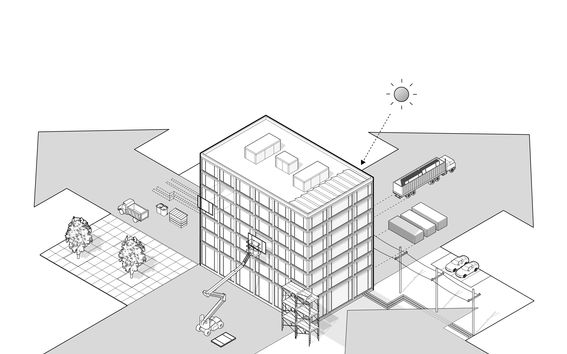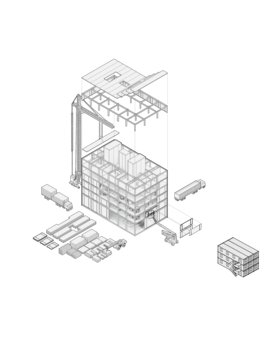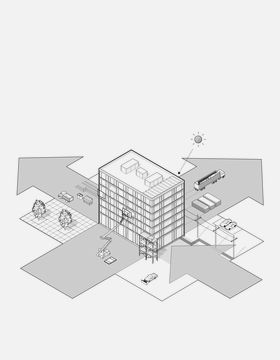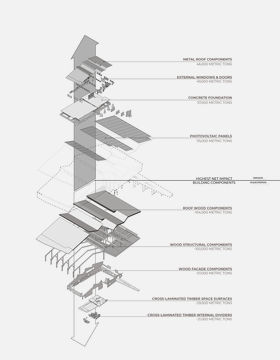Open online training material by Aalto and Yale Universities promotes low-carbon construction

With a large proportion of the buildings, infrastructure and energy systems of the world due to be built or renewed in the next 15 years, the construction field holds tremendous potential for developing a sustainable society. Professionals in the field agree: smart solutions can help significantly speed up the materialization of a low-carbon future. Yet there’s an urgent need for training across the field and, until now, training material and tools for low-carbon construction have been hard to find.
Globally accessible and easily adoptable, Decarbonize Design is an online course with supporting curricular materials for anyone working in constructed environments: designers, architects, and engineers as well as material manufacturers, construction companies, and policy makers responsible for project planning and construction-related decisions. The module consists of video lectures and templates for teachers, and a guidebook is scheduled for publication in the fall of 2019 .
Decarbonize Design is rooted in a so-called life cycle approach, which, according to the designers of the course material, should be integrated into the building design process. The life cycle of buildings spans from the extraction of material, through land use planning and building design to the actual construction, operation and finally to demolition and reuse and recycling of building components.
‘The crucial question concerns the formation of buildings’ emissions throughout their life cycle as well as the rate at which the emissions can be brought down. Building design and well thought-out material choices can have a significant effect on these things,’ says project leader Professor Matti Kuittinen from Aalto University. ‘Luckily, a low-carbon approach can be easily adopted, and it’s not difficult mathematically speaking. Cost accounting is done all the time, and the very same source information can be used to calculate the carbon footprint of construction.’
’This is a challenging moment in the history of the planet,’ noted co-author Alan Organschi of Yale School of Architecture. ‘Anyone involved in the formation of the built environment — from material producers to policy makers — directs the consumption of resources and has both enormous responsibility and significant opportunity to reshape our future. It’s a difficult but also an exciting time to be in the field of building design and construction.’
‘How will the cities of the future be designed and constructed? This is a crucial question if we want to achieve a society based on circular economy. Will our new places of residence support a sustainable lifestyle? The know-how of our professionals is a very important factor in the making of this future. We are extremely happy that Aalto University and Yale have combined their forces to create this online material,’ says Leading Specialist in Circular Economy Nani Pajunen from Finnish Innovation Fund Sitra, which funded the project.
The course material has been developed jointly by the Aalto University School of Arts, Design and Architecture and the the Yale School of Architecture of the United States. You can find Decarbonize Design here.
Further information:
Matti Kuittinen, Adjunct Professor, Aalto University School of Arts, Design and Architecture
matti.kuittinen@aalto.fi
Tel. +358 44 505 2737
Alan Organschi, Director of Yale Building Project LAB
alan.organschi@yale.edu
Alan Organschi, Yale School of ArchitectureWe have an enormous responsibility and significant opportunity to reshape our future.
Read more news

MyCourses additional maintenance downtime on Tuesday, 24 March 2026, from 9:00 to 16:00
Service break in MyCourses Tue 24.3.2026.Eden Telila's master's thesis contributed to Ramboll's geotechnical toolkit
Geoengineering alum Eden Telila helped Ramboll automate manual tasks.
Doc+ connects research impact with career direction - join the events!
Doc+ panels have brought together wide audiences in February and continue in March with two events to discuss doctoral careers and their diversity.









